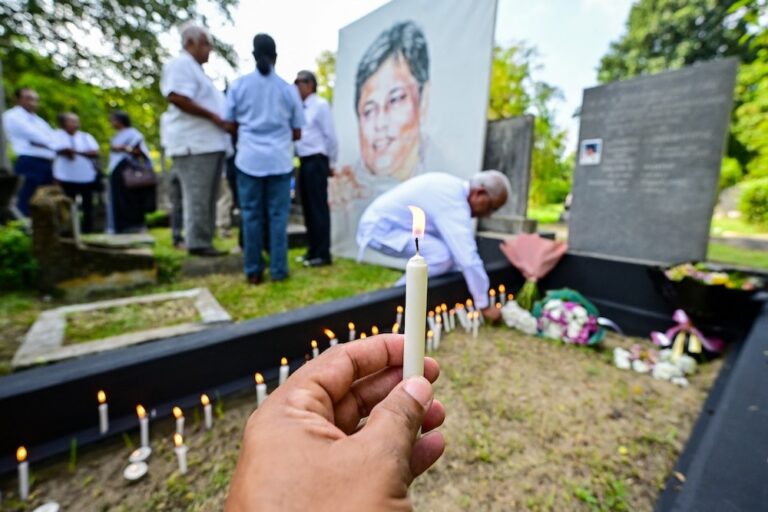(FMM/IFEX) – FMM has expressed its shock and disbelief that government authorities shamelessly ordered the state-controlled TV station, SLRC, to stop a live TV programme related to freedom of expression in Sri Lanka. On 4 November 2008, SLRC abruptly stopped a live TV discussion on the recently-imposed Private Television Broadcasting Station Regulations without giving any […]
(FMM/IFEX) – FMM has expressed its shock and disbelief that government authorities shamelessly ordered the state-controlled TV station, SLRC, to stop a live TV programme related to freedom of expression in Sri Lanka. On 4 November 2008, SLRC abruptly stopped a live TV discussion on the recently-imposed Private Television Broadcasting Station Regulations without giving any reasons to the audience.
The SLRC had invited FMM Convener Uvindu Kurululasuriya to participate in the discussion to represent media organisations. The other two panelists were Mr. Chritha Harath, adviser to the media minister, and Mr. Damma Disanayaka, a university lecturer. After 45 minutes, the discussion was stopped suddenly, a commercial break was announced and stations started to play songs that replaced the live discussion.
FMM condemns this direct censorship by state authorities in the strongest terms. This is a clear violation of peoples’ right to know. Furthermore, it shows the government’s negative and shameless attitude towards peoples’ right to know. According to FMM, this authoritarian and arrogant attitude of government authorities in ordering that a live TV discussion be stopped is an irony which shows the government’s real intentions in introducing new laws to control TV broadcasting. The discussion itself was on the same subject of state regulation of the media.
This act of censorship again reinforces FMM’s position that the government should not be allowed to regulate either the print or electronic media. If a minister who acts unethically and unscrupulously to censor a live TV debate on regulations imposed by himself becomes the regulator of all privately-owned TV stations, as envisaged by the regulations, FMM fears that all TV stations will become his master’s voice.
FMM hopes that there will not be a witch hunt against its convener, Uvindu Kurululasuriya, who expressed FMM’s position during the discussion, strongly criticising the new regulations. It is very clear that the programme was stopped mainly to censor FMM’s convener, who was criticising the government’s authoritarian intentions in imposing these regulations.
Once again, FMM asks the government to withdraw these obnoxious regulations immediately. FMM reiterates its position that if the aim is to establish a legitimate regime of fair, transparent and accountable regulation, the government should enter into open consultations with those directly affected, the media profession and broader civil society, so that a proper legal framework may be developed.


